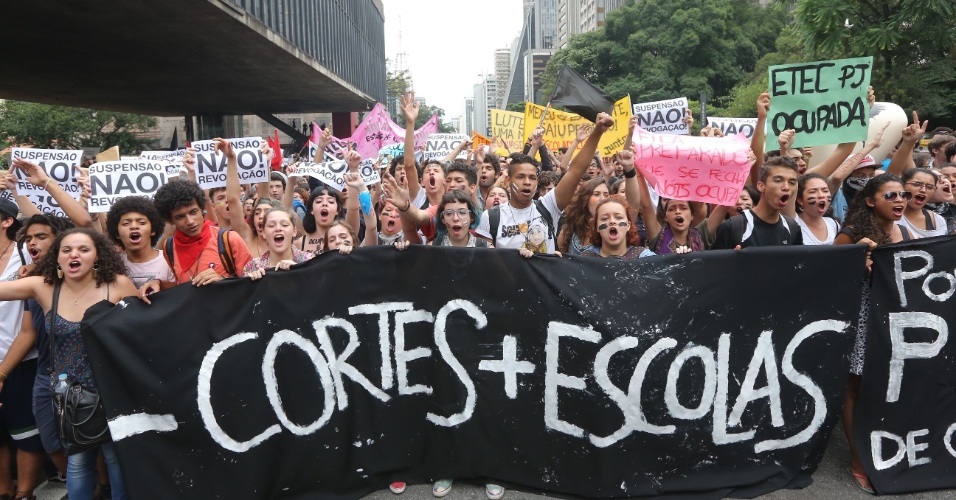
As Fall 2016 registration hit, I was faced with the power to, for the first time in my life, create my entire class schedule. I wasn’t trying to be an overachiever, I wanted a rather chill first semester of college, quite honestly. I spent a few days trying to understand NYU’s College Core Curriculum and my options for such. That was when I came across a class called “Latin American Cities.” As a Brazilian student that was born and raised in Brazil, I instantly thought that this would be the perfect class for me to smoothly complete my required credits. I wasn’t wrong. While the class is incredibly interesting and I am often learning new information about Latin America and even my own country, I have recently come to realise that my fellow classmates see me, a Latin America native, as an ultimate experts on the subject, which is not accurate at all.
On November 30, we had, by far, my favorite class. Our assignment was to find a social movement, in or out of Latin America, to be discussed in class, in groups, and then shared to the larger lecture. As soon as I heard about the assignment, I was compelled to share the story of my friend Monique and Desabafo Social or Emicida’s work with LAB. However, I couldn’t possibly ignore my Brazilian youth and their nation-wide movement. So, here it is, everything that I’ve learned after talking to Brazilian teens and young adults that are simply interested in their country’s politics and their power as students, people, and activists.
Before diving into the the brilliance of the protests and takeovers, allow me to explain what PEC 241/55 is. A Proposal of an Amendment to the Constitution (Proposta de Emenda à Constituição), PEC 55, previously PEC 241, aims to change the Brazilian constitution so that the growth of public spending is limited, essentially lowering the spending of the Brazilian government. For twenty years, if approved, PEC 55 will freeze public investments as an attempt to correct inflation. On October 10, the House of Representatives approved it with 366 votes in favor, 111 against and two abstentions. On October 25, the second voting process of the House happened and it was yet again approved with 359 votes in favor, 116 against, and two abstentions. This week, on November 29, just a day before my Latin American Cities class, the Senate approved the PEC 55 with 61 votes in favor and 14 against.
Alright, if it is meant to, in a way, improve the Brazilian economy, why would students be so actively against it? Well, specialist have affirmed that it could cause serious “threats to the National Education Plan” and the students, those that benefit from such, do agree. For educators, freezing public spending, “puts at risk the expansion of the network in a country where 3 million do not go to schools.” Ana Júlia, a 16 year-old student, explains the movement better than I ever could.
She asks, “Whose school is it? Who does the school belong to? It is an insult to us, who are there, dedicating ourselves, seeking motivation every day, to be called indoctrinated. It is an insult to students, teachers.” If the students are saying it themselves, why isn’t Brazil listening?
As students have taken over schools and universities, classes have been halted in most institutions, being the reason behind most arguments against the movement that claim students are taking advantage of their own protest to have an extended vacation period. Many also like to blame students of public institutions, accusing them of being unwilling to conclude their semesters, unlike students of private institutions. That accusation, however, is extremely false. Students at private institutions have also joined protests and takeovers since the freezing of public spending will directly negatively influence scholarships that many couldn’t possibly attend school without.
Once I shared all of this with my Latin American Cities classmates, they were amazed by how informed I was. Little did they know that I had just learned all of this in less than half an hour just by sitting down with fellow Brazilian students and friends involved in the protests. I did not pull an all-nighter reading articles, studying the Constitution, neither am I that interested in politics. I was just genuinely interested in what my friend were fighting for. As I watched, all the way from New York, as 10 million Brazilians protested outside the voting location, dealing with police brutality, I just knew that I had to listen, I had to know what was going on. If I, for a simple assignment, in just a few minutes, was able to learn all this by just listening to teens and young adults, how come Brazil hasn’t been able to do the same for the past year?




